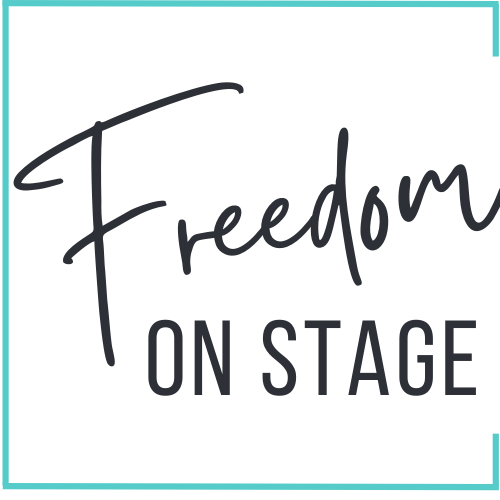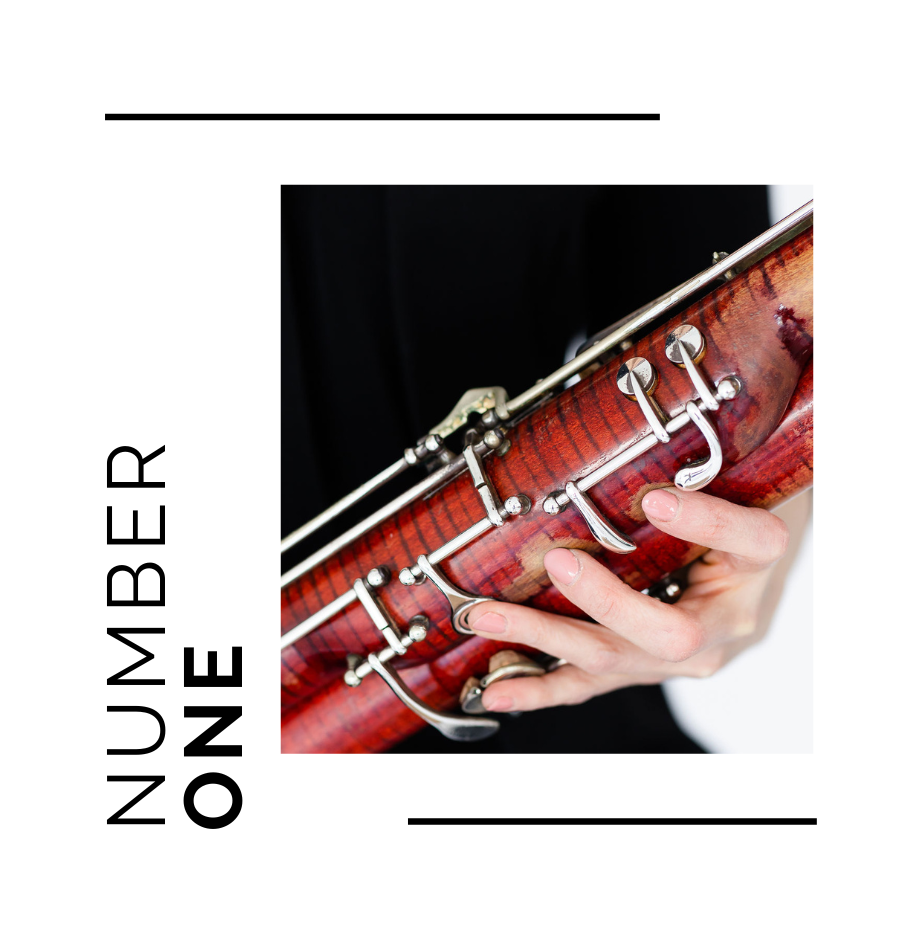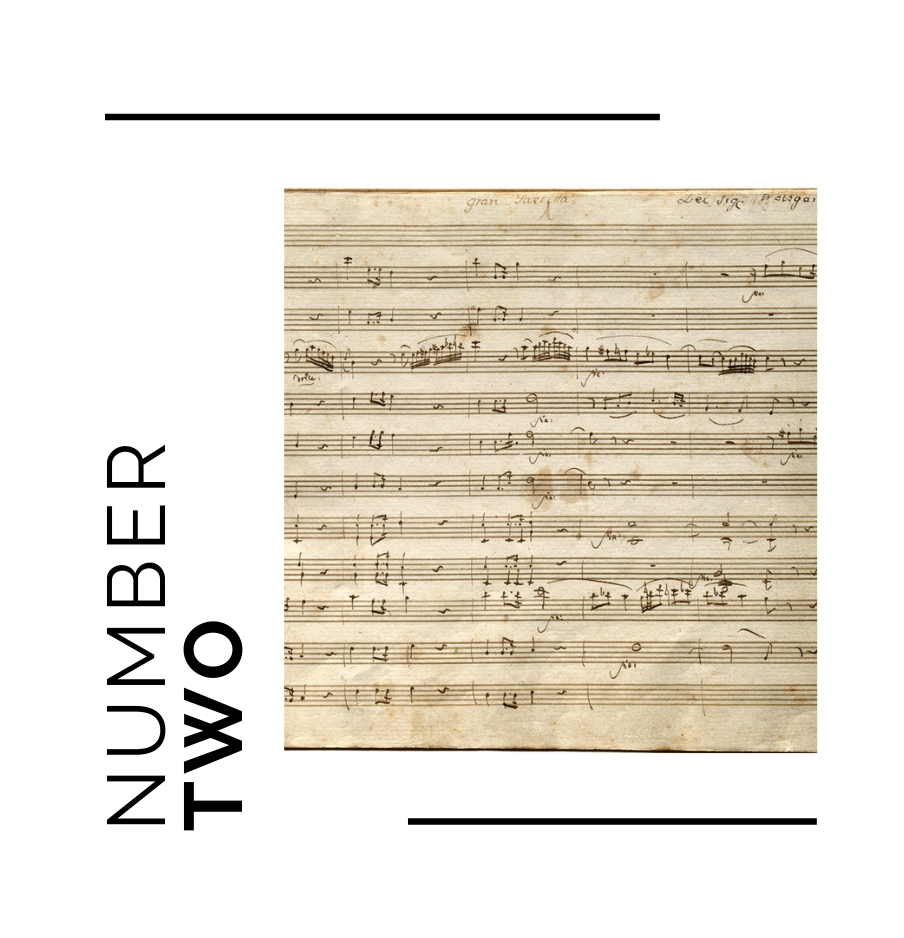if you’re a classical musician, I bet you have the same dream i do.
On stage.
Fully immersed in the music.
Doing what you love at the peak of your abilities.
Feeling confidence, ease, and joy knowing you’re doing exactly what you’re meant to be doing.
in other words, to experience freedom on stage.
but too often, our actual experience feels anything but free.
even when things are going well, inside it feels like:
we’re stuck in our head
Thinking about the tricky passage coming up, what other people are thinking, or mistakes that happened two measures ago.
we’re losing consistency
Things just don’t feel the way they did in the practice room, and mistakes seem to come out of nowhere.
we’re letting ourselves down
We never live up to our own standards of perfection, and our mind makes sure we know it.
which leaves us wondering if this really is what we should be doing, after all.
if this sounds familiar, you’re in the right place.
I help classical musicians get out of their own way so they can perform on stage the way they know they’re capable of in the practice room, and feel great while they do it. But for the first 20 years of my career as a bassoonist, I felt stuck in this exact cycle.
I bet—like me—you’ve tried everything you think might help:
Practicing to exhaustion (because more preparation must be the answer)
Deep breathing and positive affirmations (because we just need to calm down and feel better about ourselves)
Beta blockers (because feeling our nerves is the last thing we want to risk)
Bananas (because, hey, maybe they’ll work and if not at least they’re tasty)
Just “hoping it will happen” (because thinking about it too much freaks us out even more)
These might take the edge off, but they don’t address how we actually get in our own way: chronic overthinking and fighting our own nervous system.
We’ve worked too hard to settle for this. Musicians deserve a better experience.
my journey from frustration to flow
Like most musicians, I spent over a decade “living in the practice room” in music school (University of Michigan, Yale, and Eastman, in my case). I worked hard and I was lucky: I won auditions, landed a full-time teaching job at a flagship state university, and was busy performing orchestral, solo, and chamber music across the US, Canada, South America, Europe, and Asia.
suddenly, I had the kind of career I daydreamed about in college.
but behind the scenes, i was frustrated.
I wasn’t as far along or as good as I thought I should be.
My inner critic seemed intent on appearing at the worst possible moments.
I felt like my mind was always in the way.
What I played on stage didn’t match what was in my head, or what I could do in the practice room.
It felt like I was “forcing it,” instead of being fully present and at ease.
And I was relentlessly self-critical whenever I failed to stay “in the zone.”
not that this produced bad performances.
But it was exhausting. And forget about doing anything inspired or creative in the moment–I was firmly in survival mode. And so while my performances sounded good (so other people said), they often didn’t feel good.
Sometimes I felt like two people:
One who couldn’t wait to get on stage.
And one who was dreading what might happen.
I tried anything I thought might help:
Zen meditation. Sports psychology. Journaling. Tai chi and qigong.
enter mindset coaching and flow training
Mindset coaching and flow state training gave me the tools to finally get out of my own way and put together the lessons from 20 years of trial and error, so I could show up on stage fully present, playing exactly the way I want to.
Now I’m a certified coach helping fellow classical musicians achieve this for themselves, using the same practical, science-based method I developed for myself.
freedom on stage isn’t just about executing what we’ve practiced.
It’s about giving ourselves practical tools to:
Leverage the power of the mind to work for us instead of against us.
Build a musical life of sustainability and satisfaction, not just excellence.
Find flow—the place where everything clicks, nothing but the music matters, and we perform our best.
why trust me to be your guide?
Because I’ve been there! And I bring the same commitment I had to solving the problem for myself to solving it for my clients, in a way that works for each person’s unique needs and goals..
I’ve worked with dozens of musicians, both professionals and conservatory students, to find more ease and freedom in their performing.
20+ years of university-level teaching experience taught me to distill universal principles into practical tools that achieve results.
I’m a also certified life coach, with additional training in flow coaching from the Flow Research Collective.
“Dr. Hileman’s work is truly one-of-a-kind in the world of musicianship. I went from feeling frustrated and helpless struggling with nerves to knowing that my thoughts and preparation are the main controls of my success or failure.”
— Annie moon, horn
“This program helps with ALL mental things, not just music. I now know how to handle anything with a plan that makes me feel ‘I know I will get through it.’ I learned what I value, what is important, and what makes me, me.”
— mandi bearjar, clarinet
“I came into this thinking it was pseudoscience.... I walked out having a concrete, objective, and analytical way to view my musical life. I believe every musician should utilize these mental tools as if they were using the metronome.”
— Eli hall, bassoon
Here’s what things look like on the other side:
I trust myself to let go and play without overthinking or micromanaging.
I control less, allow more, and perform with more consistency and ease.
I exceed my own expectations, instead of disappointing myself.
I move on from mistakes like they’re no big deal, and enjoy the challenge of adapting.
I welcome nervousness—crave it, even—because I know it means something exciting is about to happen.
And the best part is, I experience a sense of joy and gratitude on stage that makes all the struggle worthwhile.
Sound good? Here’s how we can work together.
schedule a Consultation
Get 1-on-1 coaching
find freedom on stage
a bit about me
MY bassoon origin story
I chose the bassoon because, when my 7th grade band director asked for volunteers, it looked really weird and no one else wanted to do it.
(I’ve always had a contrarian streak.)
MY secret musical fantasy
As a bassoonist, I’m mostly known for performing contemporary and experimental music.
But if I could do anything, I’d sit around all day playing Mozart serenades and basso continuo.
MY feline quota
I believe the perfect number of cats is 3, which puts me either one cat over or one cat shy of “Crazy Cat Lady” status, depending on who you ask.
(Don’t ask my husband. Or the dog.)
Looking for my official bio?
lynn hileman is a bassoonist, teacher, and coach in san francisco, CA
Bassoonist Lynn Hileman’s performances as a soloist and chamber musician have taken her around the world, with appearances in the United States, Europe, Latin America, and Asia at venues including the Festival Internacional de Sopros (Rio de Janeiro), November Music and GLOW Festivals (the Netherlands), the Surround Festival (Brugge, Belgium), and the Florida Electroacoustic Music Festival.
As a passionate advocate of contemporary and experimental music, she has given workshops on live looping techniques for bassoon and is a founding member of the contemporary bassoon collectives Tuple Bassoon Duo, Dark in the Song, and Rushes Ensemble.
Equally at home with traditional repertoire, she is Principal Bassoon of the Binghamton Philharmonic Orchestra and Acting Principal Bassoon of the West Virginia Symphony. She has also performed with the Pittsburgh Symphony Orchestra, the Rochester Philharmonic Orchestra, and the Syracuse Symphony Orchestra, among others, and is a frequent presenter at annual International Double Reed Society conferences.
Lynn served as Associate Professor of Bassoon at West Virginia University for 16 years before becoming a LCS and Flow Research Collective certified coach and founding Freedom on Stage, a program focusing on life, mindset, and performance coaching for classical musicians.
She holds degrees from the University of Michigan (BM), Yale University (MM), and the Eastman School of Music (DMA). Her principal teachers include John Hunt, K. David Van Hoesen, Frank Morelli, Christopher Millard, and Richard Beene.



















